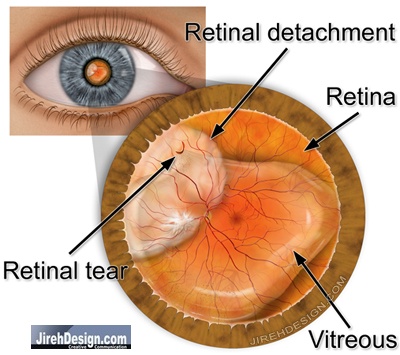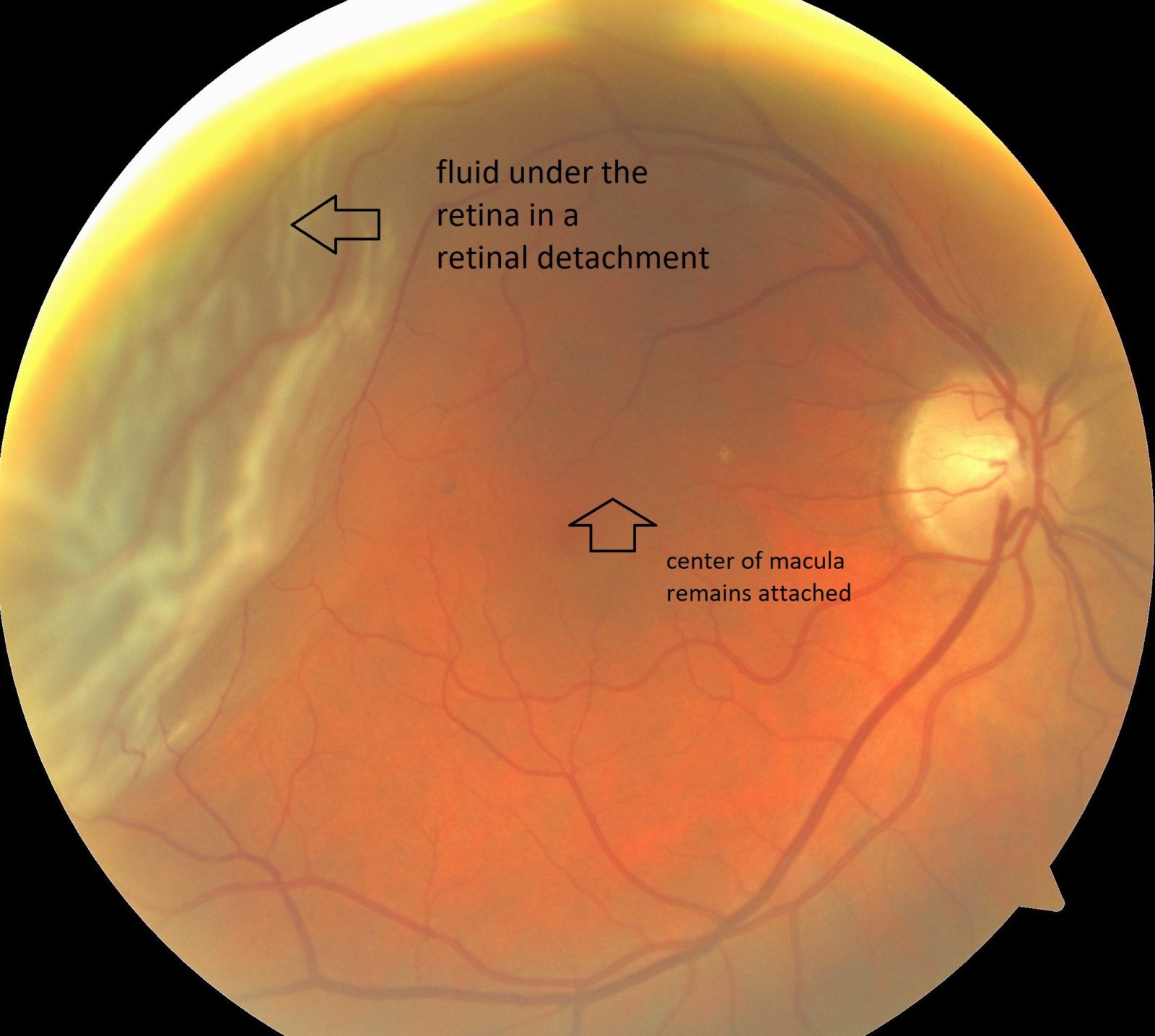

Tractional retinal detachment happens if scar tissue on your retina pulls your retina away from the back of your eye. Other things that can increase your risk of rhegmatogenous retinal detachment are eye injuries, eye surgery and nearsightedness. Sometimes, as it shrinks, the vitreous can pull on your retina and tear it. As you get older, the vitreous in your eye may change in texture and shrink. The vitreous then pushes your retina away from the back of your eye, causing it to detach.Īging is the most common cause of rhegmatogenous retinal detachment. This type can cause the gel-like fluid in the center of your eye (called vitreous) to get behind your retina. Rhegmatogenous retinal detachment is the most common type of retinal detachment and can happen if you have a small tear or break in your retina. Each type happens because of a different problem that causes your retina to move away from the back of your eye. There are three types of retinal detachment: rhegmatogenous, tractional and exudative. A gray curtain covering part of your field of vision.A shadow appearing in your peripheral (side) vision.Flashes of light in one eye or both eyes.Floaters, or small dark spots or lines, that float across your vision.The American Academy of Ophthalmology points to these symptoms: But if more of your retina is detached, you may not be able to see as clearly. If only a small part of your retina has detached, you may not have any symptoms. What are the symptoms of retinal detachment? You have had prior eye surgery including cataract surgery.You have other eye diseases, including retinoschisis (when the retina separates into two layers) or lattice degeneration (thinning of the retina).You have posterior vitreous detachment (when the gel-like fluid in the center of the eye pulls away from the retina).You have diabetic retinopathy (a condition in people with diabetes that affects blood vessels in the retina).You or a family member has had a retinal detachment before.Anyone can have a retinal detachment, but The National Eye Institute says you are at higher risk if:

There are many causes of retinal detachment, but the most common causes are aging or an eye injury. Getting prompt treatment can help protect your vision. If it’s not treated right away, more of the retina can detach, increasing the risk of permanent vision loss or blindness. Retinal detachment often comes on quickly and is an emergency. Retinal detachment is a rare, but serious eye condition that happens when your retina (a light-sensitive layer of tissue in the back of your eye) is pulled away from its normal position.


 0 kommentar(er)
0 kommentar(er)
